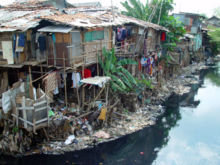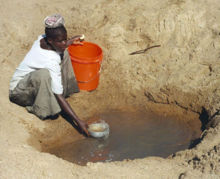Difference between revisions of "Existing scarcity"
From AdCiv
| Line 6: | Line 6: | ||
All the usual suspects, and a lot applies as much to Western countries as it does to the developing world. | All the usual suspects, and a lot applies as much to Western countries as it does to the developing world. | ||
| − | *Clean energy | + | *Clean [[Fundamental resources/Energy|energy]] |
| − | *Clean water | + | *Clean [[Fundamental resources/Water|water]] |
| − | *Nutritious food | + | *Nutritious [[Fundamental resources/Food|food]] |
*Medicine and medical facilities | *Medicine and medical facilities | ||
*Decent housing in slum areas | *Decent housing in slum areas | ||
*{{wp|Sustainable_development|Sustainable development}} | *{{wp|Sustainable_development|Sustainable development}} | ||
| − | *High quality, interesting education | + | *High quality, interesting [[Education|education]] |
| − | *Safe and efficient | + | *Safe and efficient transport that doesn't kill or maim significant numbers of passengers or contribute to changing our climate |
| − | *The facilities for people and communities to do more things for themselves - we are too reliant on machines and products from big business | + | *The facilities for people and communities to do more things for themselves - we are too reliant on machines and products from big business. Most people are not in a situation where they can even keep themselves alive when cut off from the products of centralized production, and this leads to unnecessary deaths and suffering when these services are disrupted in [[disasters]] |
*Resources to get things done that need to be done - at a community level {{em}} sounds woolly perhaps but covers uncountable worthy projects that simply don't get done through lack of funds, manpower or bureaucratic hurdles | *Resources to get things done that need to be done - at a community level {{em}} sounds woolly perhaps but covers uncountable worthy projects that simply don't get done through lack of funds, manpower or bureaucratic hurdles | ||
*Quality - quality products and architecture as examples. | *Quality - quality products and architecture as examples. | ||
Revision as of 09:08, 23 April 2010
|
Detailed tour:  previous page | next page
previous page | next page 



